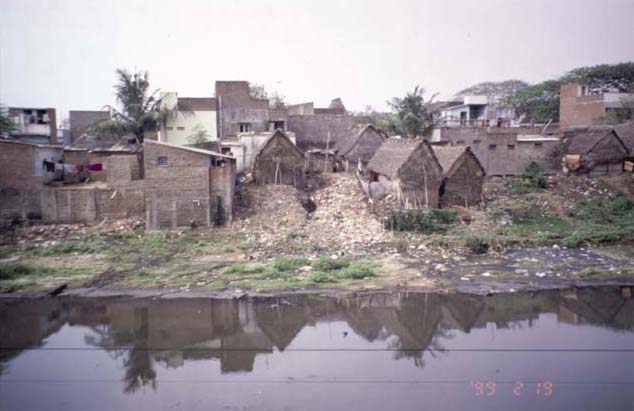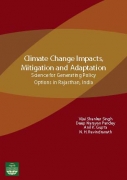Anil K Gupta
Importance of protecting and improving ecosystems for reducing disaster risk - A report by NIDM
Posted on 03 May, 2012 02:53 PMThe interception of ‘top-down’ and ‘bottom-up’ approach manifests conflicting situations in ground despite of visible synergies in top level policies. ‘Sustainability quest’ is the emerging concern in disaster management as a consequence of improved understanding of ‘disasters’ as environmental processes or rather as ‘environmental extremes’.
Climate-change adaptation in rural areas of India
Posted on 03 May, 2012 02:33 PMThe report suggests that -
Environmental knowledge for hydro-meteorological disaster management: Capacity development in disaster risk management
Posted on 03 May, 2012 02:27 PMPoor understanding of the environment – its structure, function, resources, especially at the level of planners and policy makers, have resulted in increasing frequency and intensity of hazards in nature. Understanding of the environment, its processes and resources are important for the early detection of hydro-meteorological hazards, prediction of disaster risk and scenarios and in evolving m
Relevance of traditional knowledge in disaster prediction, management and climate change - Special issue - Indian Journal of Traditional Knowledge
Posted on 25 Aug, 2011 02:15 AMThis special issue of the Indian Journal of Traditional Knowledge has a focus on the importance of traditional knowledge in disaster prediction, forecasting, management and climate change and includes fourteen papers on studies from India. The papers include:
Urban floods in Bangalore and Chennai – Risk management challenges and lessons for sustainable urban ecology – A paper in Current Science
Posted on 22 Jun, 2011 10:23 PM Two important metro cities of India, viz. Bangalore and Chennai are discussed. The aim of the study was to understand the problems of increasing flooding incidences in urban areas and related contexts of urban development and ecological issues. Data of secondary origin have been collected and interpreted in the context of flood risks and urban management. The paper also conveys wider issues and lessons for flood challenges in Indian cities and towns.
Two important metro cities of India, viz. Bangalore and Chennai are discussed. The aim of the study was to understand the problems of increasing flooding incidences in urban areas and related contexts of urban development and ecological issues. Data of secondary origin have been collected and interpreted in the context of flood risks and urban management. The paper also conveys wider issues and lessons for flood challenges in Indian cities and towns.
Climate change impacts, mitigation and adaptation - Science for generating policy options in Rajasthan
Posted on 20 Dec, 2010 09:14 PM This paper by Rajasthan Pollution Control Board on climate change impacts in the context of Rajasthan seeks to address the issue of need of the society for robust knowledge to pursue strategies for mitigation as well as adaptation in order to address the challenges associated with global warming and climate change.
This paper by Rajasthan Pollution Control Board on climate change impacts in the context of Rajasthan seeks to address the issue of need of the society for robust knowledge to pursue strategies for mitigation as well as adaptation in order to address the challenges associated with global warming and climate change.
Accordingly, here a brief review of the available literature and an annotated bibliography of published research on climate change impacts, mitigation and adaptation in order to facilitate the identification of policy options in Rajasthan is provided.
Also included is the literature on how human societies contribute to environmental change and how, in turn, become vulnerable to these changes. It also explores the available knowledge on how likely ecosystem goods and services are impacted to climatic oscillations (environmental sensitivity) and the ability of rural communities to cope (social resilience) with those changes.
Reorienting Dryland Research in India: Students’, Scientists’, and Farmers’ Point of View
Posted on 29 Aug, 2009 03:48 PMReorienting Dryland Research in India: Students', Scientists', and Farmers' Point of View
Read More